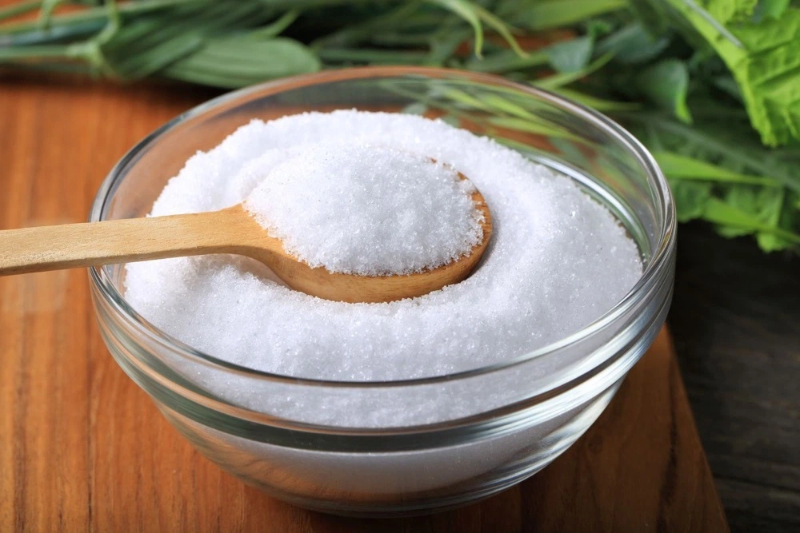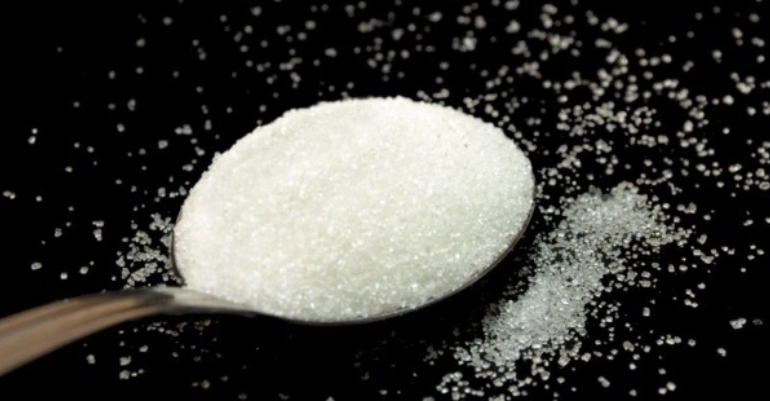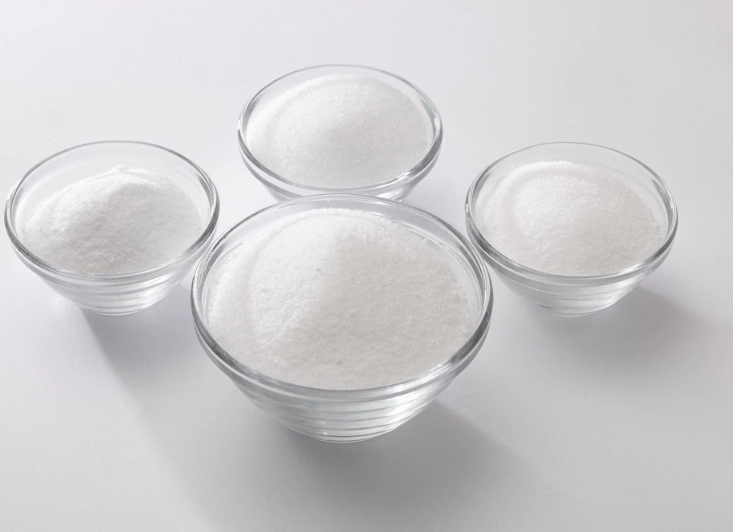Views: 222 Author: Sara Publish Time: 2025-09-28 Origin: Site








Content Menu
● Chemical and Functional Differences Between Aspartame and Xylitol
● Does Aspartame Contain Xylitol?
● Applications in Food, Beverage, and Healthcare Manufacturing
● Choosing Between Aspartame and Xylitol
● FAQ
>> 1. Does aspartame contain any sugar alcohols like xylitol?
>> 2. Can people with diabetes safely consume products with aspartame?
>> 3. Are there health risks related to high consumption of xylitol?
>> 4. Why must individuals with phenylketonuria avoid aspartame?
>> 5. Can aspartame and xylitol be used together in the same product?
In recent years, as health awareness around sugar consumption has grown, the food, beverage, and healthcare industries have turned increasingly to alternative sweeteners. Among these, aspartame and xylitol stand out for their widespread use and distinctive properties. A common question that arises from consumers and manufacturers alike is: Does aspartame contain xylitol? This comprehensive article explores the science behind these two sweeteners, providing clear answers and valuable insights for product developers and health-conscious consumers alike.
By delving into their chemical makeup, uses, safety profiles, metabolic processes, and health impacts, this guide aims to equip readers with a thorough understanding of both sweeteners and their roles in modern products.

Aspartame is an artificial sweetener made from two amino acids: aspartic acid and phenylalanine. It is about 200 times sweeter than regular table sugar but contains virtually no calories, making it a popular choice for low-calorie and sugar-free products. First discovered in 1965 and approved by the FDA in 1981, aspartame is widely used in diet sodas, sugar-free chewing gums, light yogurts, and pharmaceutical syrups.
When consumed, aspartame breaks down quickly in the digestive system into its constituent amino acids and a small amount of methanol, all of which are metabolized easily by the body. This characteristic makes it suitable for diabetics and those watching their caloric intake. The intense sweetness and absence of calories have made aspartame a staple ingredient in the global low-calorie sweetener market.
Xylitol is a natural sugar alcohol, scientifically classified as a polyol. It occurs in small amounts in fruits and vegetables like berries, plums, cauliflower, and pumpkins. Known as "birch sugar" due to its commercial production from birch trees and other hardwoods, xylitol provides sweetness similar to sugar but with about 40% fewer calories.
Xylitol is commonly found in sugar-free gum, candies, oral hygiene products (like toothpaste and mouthwash), and low-sugar baked goods. Beyond sweetness, xylitol offers dental benefits by reducing the growth of cavity-causing bacteria and promoting saliva production, which helps neutralize harmful acids and remineralize tooth enamel.
Despite these positives, xylitol consumption in large amounts has been linked to gastrointestinal issues like bloating, gas, and diarrhea. Additionally, recent research suggests potential cardiovascular risks associated with high blood levels of xylitol, particularly its role in increasing blood clot activity, a concern for individuals prone to heart attacks or strokes.

Aspartame and xylitol are fundamentally different substances:
| Feature | Aspartame | Xylitol |
|---|---|---|
| Chemical Type | Artificial sweetener (amino acid-based) | Natural sugar alcohol (polyol) |
| Sweetness Level | Approximately 200 times sweeter than sugar | Similar sweetness to sugar |
| Caloric Content | Virtually zero | About 2.4 calories per gram (40% less than sugar) |
| Dietary Impact | No impact on blood sugar levels | Low glycemic index, slight effect on blood sugar |
| Common Uses | Diet sodas, sugar-free foods, pharmaceuticals | Sugar-free gums, candies, toothpaste |
| Metabolism | Breaks down to amino acids and methanol | Partially absorbed and metabolized by liver |
| Health Considerations | Avoided by people with PKU; FDA-approved safe | May cause GI symptoms at high doses; potential cardiovascular risks at high blood levels |
The differences make them suited for distinct applications. Aspartame's intense sweetness and absence of calories suit beverages and sweet foods requiring strong sweetness without bulk. Xylitol's chewing gum and oral health applications leverage its anti-cavity properties, plus moderate sweetness and some caloric value.
The direct answer is no. Aspartame does not contain xylitol. They are completely different compounds with no cross-contamination in production or formulation. Aspartame is synthesized chemically from amino acids, while xylitol is naturally extracted sugar alcohol from plant sources or industrially hydrogenated xylose from wood or corncobs.
Aspartame and xylitol do not share chemical structures, metabolic pathways, or physical properties. Products containing aspartame typically do not include xylitol unless explicitly blended as part of custom sweetener formulations.
Aspartame has been rigorously studied for safety by organizations such as the FDA, EFSA, and WHO. It is deemed safe for general consumption within the Acceptable Daily Intake (ADI) of 50 mg per kilogram of body weight. For a 70 kg adult, this corresponds to roughly 3500 mg of aspartame daily, or about 19 cans of diet soda sweetened with aspartame.
One key exception is individuals with phenylketonuria (PKU), a rare inherited disorder in which the amino acid phenylalanine cannot be metabolized properly. For these individuals, aspartame ingestion leads to dangerous phenylalanine buildup causing neurological damage, so products containing aspartame carry warnings.
Despite occasional claims linking aspartame to headaches, allergies, cancer, or neurological issues, comprehensive reviews have found insufficient evidence supporting these risks when consumed within safe limits.
Xylitol is safe at moderate intake levels and has the added benefit of reducing tooth decay risk. However, consumption above 50 grams per day (some individuals tolerate less) can cause gastrointestinal discomfort, including diarrhea, bloating, and gas.
More recently, studies have raised concerns about high blood levels of xylitol increasing cardiovascular risks. Research indicates that xylitol may enhance platelet reactivity and blood clotting, which could increase the risk of events such as heart attacks and strokes, especially in predisposed individuals. These findings, while significant, require further study before definitive conclusions.
Aspartame and xylitol serve different market needs:
- Aspartame: Ideal for calorie-free sweetening in beverages like diet sodas, sugar-free desserts, and pharmaceuticals where strong sweetness with no caloric impact is desired.
- Xylitol: Popular in dental care products, sugar-free gums, candies, and some baked goods due to sweetness, mild caloric content, and dental benefits.
For manufacturers aiming to provide healthier product lines, blending these sweeteners can create balance between taste, calories, and functional benefits. Natural sweeteners and polyols like xylitol provide dental health appeal while artificial sweeteners like aspartame deliver intense sweetness without added calories.
Deciding on aspartame versus xylitol depends on product goals and consumer needs:
- Those targeting calorie-conscious consumers or diabetics seeking low-sugar drinks often favor aspartame for its zero calories and no effect on blood glucose.
- Products focusing on oral health and moderate low-calorie sugar alternatives may lean toward xylitol for its proven dental benefits.
- Consumers with gastrointestinal sensitivities or cardiovascular concerns might opt for aspartame over sugar alcohols due to fewer digestive side effects and cardiovascular risk data.
- People with PKU must avoid aspartame but can consume xylitol safely at appropriate levels.
Ultimately, formulation professionals and consumers should consider the health implications, regulatory compliance, sensory requirements, and market preferences when selecting these ingredients.
- Aspartame: Use within regulatory limits; include PKU warnings; utilize in beverages and processed foods requiring high-intensity sweetness.
- Xylitol: Limit quantity to moderate doses to avoid GI upset; promote benefits for dental care products; monitor emerging cardiovascular research for updates on safe consumption.
Aspartame and xylitol are distinct sweeteners serving vital, often complementary roles in food, beverage, and healthcare products. Aspartame does not contain xylitol, as they differ chemically, functionally, and metabolically. Aspartame is an artificial, calorie-free sweetener suitable for sugar replacement in diet sodas and foods, while xylitol is a natural sugar alcohol valued for dental health and low-calorie sweetness.
Both sweeteners have good safety records with specific caveats—avoid aspartame if you have PKU, and consume xylitol in moderation to reduce gastrointestinal and potential cardiovascular risks. Understanding these differences enables manufacturers and consumers to make informed choices when developing or selecting products aimed at health-conscious markets.

No. Aspartame is an artificial sweetener made of amino acids and does not contain sugar alcohols such as xylitol. They are chemically different substances.
Yes. Aspartame does not affect blood sugar or insulin levels and is safe for diabetics when consumed within recommended limits.
Excessive intake of xylitol may cause gastrointestinal issues like diarrhea and bloating and has been linked to increased blood clot risk in some studies. Moderate consumption is generally safe.
Aspartame breaks down into phenylalanine, which people with PKU cannot metabolize properly, leading to harmful accumulation that can cause brain damage.
Yes. Some products combine artificial and natural sweeteners to optimize taste, texture, and calorie content depending on consumer preference and product goals.
[1](https://medisearch.io/blog/xylitol-vs-aspartame-a-comparison)
[2](https://www.marleydrug.com/blog/aspartame-or-xylitol)
[3](https://mapledental.sg/post/xylitol-vs-aspartame-battle-of-dental-friendly-sweeteners/)
[4](https://www.science.org/content/blog-post/and-now-xylitol)
[5](https://www.nhs.uk/live-well/eat-well/food-types/are-sweeteners-safe/)
[6](https://pmc.ncbi.nlm.nih.gov/articles/PMC6236052/)
[7](https://www.fda.gov/food/food-additives-petitions/aspartame-and-other-sweeteners-food)
[8](https://www.peacehealth.org/medical-topics/id/abj7112)
[9](https://spark.parkland.edu/nsps/16/)
[10](https://www.nbcnews.com/health/heart-health/artificial-sweetener-safety-sugar-research-rcna159983)
